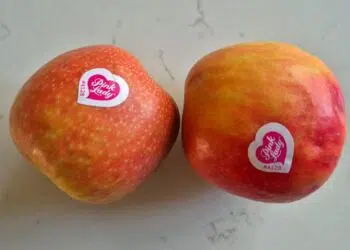Brussels – EU countries’ green light on the text of the packaging regulation that came out of interinstitutional negotiations last March 4. The permanent representatives of the 27 countries have unanimously approved an agreement on the revised EU directive called to “tackle the packaging waste increase while harmonizing the internal market and promoting the circular economy.” The Belgian presidency of the EU Council announced it.
According to diplomatic sources, only Malta and Austria have reportedly placed a scrutiny reservation. However, the text, the result of gruelling negotiations between the EU institutions, with the government and Italian MEPs at the forefront, also passes COREPER’s scrutiny and is now almost at the finish line. Now, the only thing missing is the formal approval by the plenary of the European Parliament and the ministers of the 27 countries. The regulation introduces packaging reduction targets of 5 per cent by 2030, 10 per cent by 2035 and 15 per cent by 2040. It specifically asks member countries to reduce the amount of plastic packaging waste. With the new decade, several types of single-use plastic packaging will be banned, such as those for unprocessed fresh fruits and vegetables, plastic packaging for food and beverages filled and consumed in bars and restaurants (e.g., condiments, sauces, cream, sugar, for which, however, paper sachets were “saved”). From January 1, 2030, miniature packaging for toiletries and shrink wrap for luggage at airports will also be banned.
The most hotly debated issue in Italy was recycling and reuse targets. The contrast was overcome in the final text, with the option for member states to grant derogations to operators in the sectors involved if individual packaging materials exceeded the recycling targets defined by Brussels by at least 5 per cent. “In this way, we wanted to recognize and reward the virtuosity of our system, which sees us at the top of the European framework as recycling capacity,” stressed Democratic Party MEP Patrizia Toia, rapporteur of the regulation in the European Parliament’s Industry, Research and Energy Committee.
Also, Italy was granted an exclusion from the reuse requirements for take-away, cardboard, beverages such as milk and other highly perishable, wines and other alcoholic beverages, as well as a horizontal exemption for packaging materials provided there are high recycling rates.
As claimed by Toia, Italy has “worked as a system” to profoundly change the Commission’s initial proposal. “We show that we do not have to choose between the economy and the environment,” the MEP further declared. Triumphalist tones also came from Rome: “We have shown that today in Brussels there is an Italy that does not give in to solutions that penalize our industry,” cheered Giorgia Meloni at the news of the agreement’s approval.
Palazzo Chigi also clarified that the amendments to the regulation approved “incentivize technologies in which we are investing, such as chemical recycling” and “safeguard sectors in which our companies have increased the recyclability of packaging, in which we are at the forefront, such as compostable plastics, or in which we export products of excellence, such as wines, sparkling wines, vermouths, and spirits.”
English version by the Translation Service of Withub





